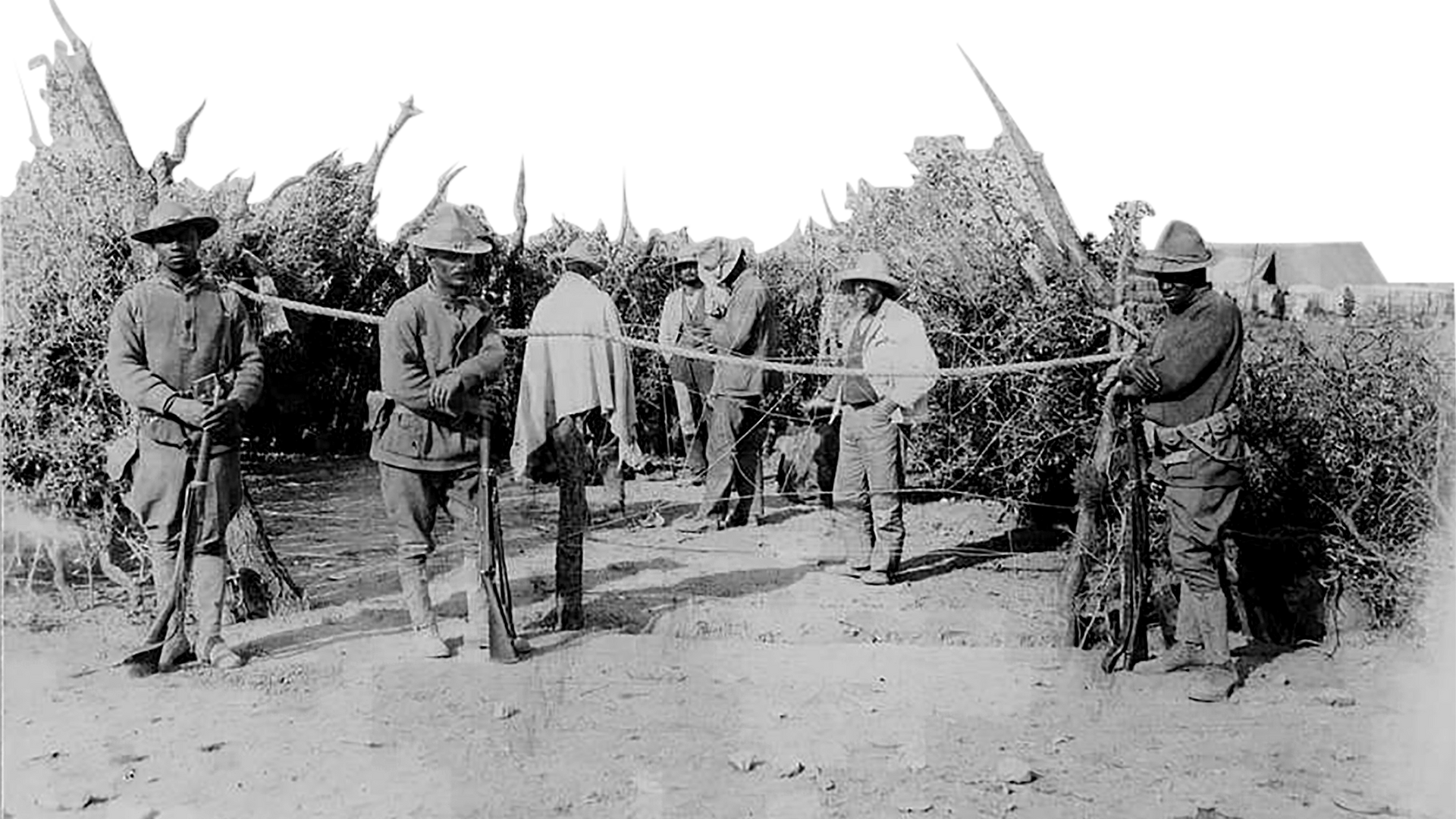
The Ride of Jacob Dodson


Mexican War
1846—1848
The Ride of Jacob Dodson
During the Mexican War (1846–1848), African Americans answered the call to serve. An 18-year-old Black man named Jacob Dodson rode with explorer John C. Fremont on an epic 800-mile journey to warn of a possible attack. Dodson played a key part in the American victory in California.
ShowHide Transcript
During the Mexican War, African Americans answered the call to serve as they have in all of America’s wars. In 1843, explorer John C. Fremont led the first of several expeditions across the Great Plains towards the Pacific Ocean, presumably to explore the West.
But the expedition had another purpose—to prepare for the outbreak of war. With Fremont were nearly forty others, including an 18-year-old Black man named Jacob Dodson.
Dodson, a free-born African American, had proven himself an invaluable member of the expedition. In the winter, he was assigned to scout ahead of the main party and located a safe path through the treacherous Sierra Mountains.
By Spring 1846, the United States declared war on Mexico. Then in California, Dodson rode with Fremont on an epic 800-mile journey to warn of a possible attack. In doing so, Dodson played a key part in the American victory in California.
Dodson was enlisted by Fremont in the U.S. Army—though it was forbidden at the time. Although Dodson’s service was unrecognized in official records, he shouldered arms and served the United States during the war against Mexico. Fremont’s forces went on to capture portions of what is now Los Angeles.
In 1848, Dodson returned to his family home in Washington, D.C., where he worked as a messenger for the U.S. Senate.
When the Civil War broke out in 1861, Jacob Dodson once more offered to serve his country. Like many other community leaders, Dodson offered to raise a whole regiment of troops. Dodson’s unit, he promised, would be all African Americans.
But Dodson’s offer was refused by the Secretary of War. Like many others in the U.S. Government, the Secretary was still unwilling to recognize the tremendous value of African American troops, even with an enemy at the doorstep. They would soon learn just how essential Black troops were, and still are, to American victory.
They would soon learn just how essential Black troops were, and still are, to American victory.